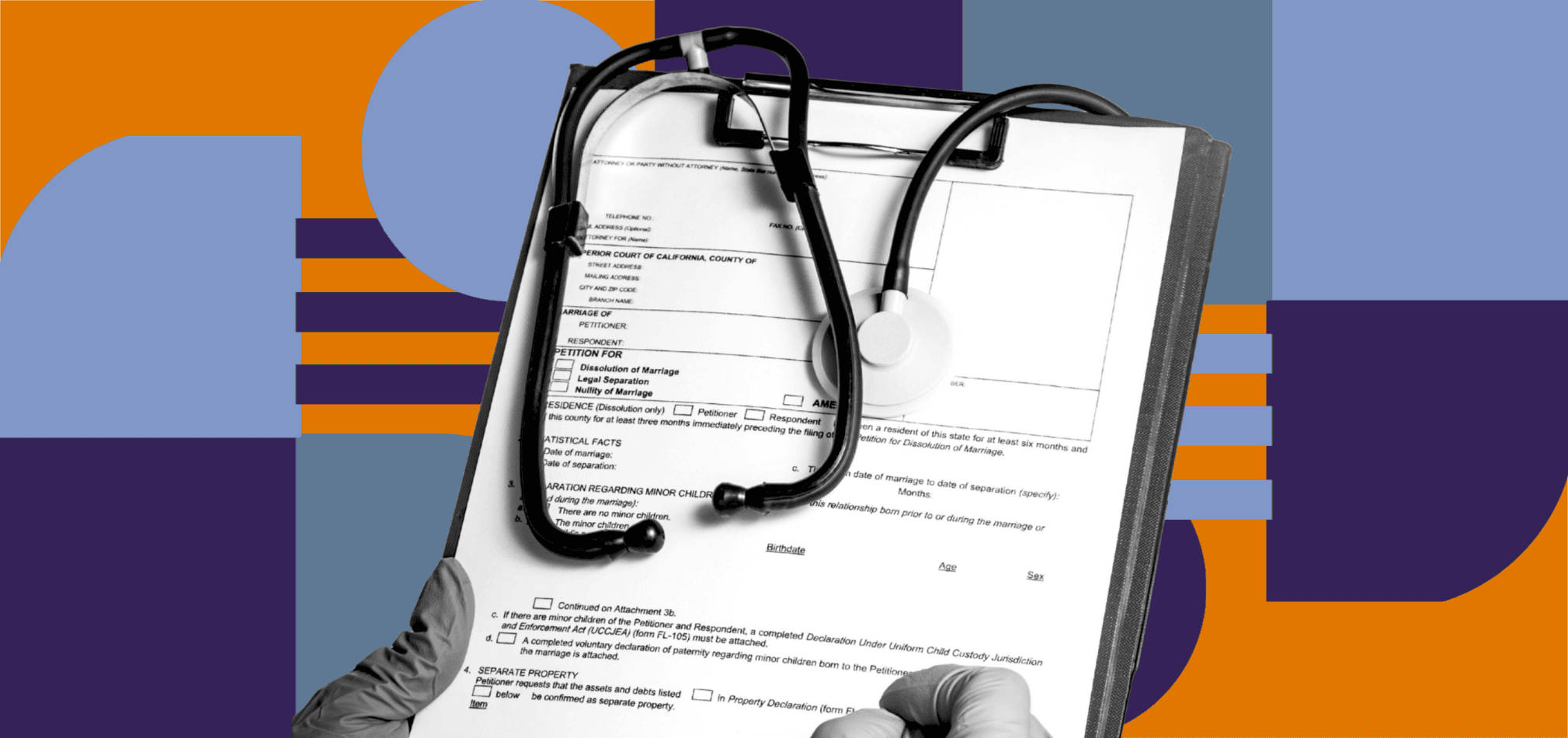Beginner’s Guide to Medicare ADRs for Home Health and Hospice Agencies
March 26th, 2025
5 min read
By Abigail Karl

You’re running a busy home health or hospice agency when a letter from Medicare arrives. It’s an Additional Documentation Request (ADR). An ADR is a demand for more records to support a billed claim. Suddenly, the clock is ticking, and your reimbursements are on the line..
If you've ever wondered:
- Why does Medicare issue ADRs?
- How can you respond quickly and correctly?
- What happens if you miss the deadline?
You’re not alone. Many agency owners experience these audits, but the key to avoiding claim denials lies in understanding ADRs, preparing a strong response, and preventing future requests.
At The Home Health Consultant, we’ve spent over 20 years helping Medicare-certified agencies strengthen their compliance and documentation practices. While we don’t currently assist with ADR responses directly, our expertise lies in helping you build the foundational systems that reduce the risk of audits and keep your agency aligned with Medicare standards.
In this guide, we’ll explain what ADRs are, why they happen, and how your agency can efficiently navigate them to keep payments flowing.
What Is a Medicare Additional Documentation Request (ADR)?

An Additional Documentation Request (ADR) is Medicare’s way of verifying that services billed to them were medically necessary and correctly documented. All agencies receive ADRs sooner or later, for a variety of reasons.
The ADR letter will specify:
- The claim(s) in question
- The exact documents needed
- The submission deadline
Think of ADRs as Medicare double-checking your work. While receiving one can be stressful, knowing how to respond correctly prevents payment delays and reimbursement withholdings.
Why Does Medicare Issue ADRs?
Medicare reviews claims randomly and for specific reasons, This can include:
- high-cost claims that get flagged for review
- unusual service combinations that may trigger scrutiny
- billing inconsistencies that differ significantly from your agency’s typical billing trends.
For the most part, the algorithms for agency and claim selection are unknown and constantly changing.
Receiving an ADR does not necessarily mean you did something wrong. It simply means Medicare wants to ensure compliance with coverage and billing regulations.
Who Sends ADRs?
Your ADR request will typically come from one of the following Medicare contractors:
- Medicare Administrative Contractors (MACs): Process claims and send ADRs most frequently.
- Recovery Audit Contractors (RACs): Focus on identifying overpayments and underpayments.
- Unified Program Integrity Contractors (UPICs): Investigate fraud and compliance issues.
- Supplemental Medical Review Contractors (SMRCs): Conduct targeted medical reviews.
To read more about Medicare contractors and how they interact with your agency, check out our article & corresponding podcast below.
Regardless of the source, ADR letters are always sent to the address Medicare has on file for your agency. Another item on the long list of reasons to keep your agency information accurate and updated with CMS.
ADRs initiated by your MAC can also appear in their online portals. For example, when NGS requests an ADR, agencies are notified via physical mail and through the NGS Connex portal.
How Should Your Agency Respond to an ADR?
A timely and complete response is crucial to avoid payment denials. If your agency receives an ADR, follow these steps:
1. Read the ADR Letter Carefully
Identify the claim, requested documents, submission instructions, and submission deadline.
2. Gather the Required Documentation
Provide all requested medical records, care plans, doctor’s orders, and supporting forms.
3. Organize Your Submission
Attach a copy of the ADR letter on top of your records for easy processing. Ensure all pages are legible and include signature logs if necessary.
4. Submit Before the Deadline
Most ADR deadlines fall between 30 to 45 days—check your letter for specifics. The due date is when the requesting entity must receive the ADR, not when it's postmarked or mailed. Any ADRs received after this date will not be accepted.
Pro Tip: If you are submitting by mail, send the documents much earlier than required, approximately 10 days.
5. Use the Fastest Submission Method
Options include fax, electronic portal, esMD, or mail. Uploading digitally often speeds up processing.
Where and how you submit your additional documentation will depend on which Medicare contractor sent you the ADR. This information is included in the ADR notification letter.
Pro Tip: If you are submitting by mail, send the documents much earlier than required, approximately 10 days. The due date is when the requesting entity must receive the ADR—not when it's postmarked or mailed. Any ADRs received after this date will not be accepted.
6. Track Your Submission
Keep copies and request confirmation to ensure Medicare receives your documents.
The sample ADR letter below shows your response due date & also lists the available submission methods. It even reminds you to put the ADR letter on top of your submission.
How Long Do You Have to Respond to an ADR?
ADR deadlines depend on the type of review and issuing contractor:
|
ADR Type |
Response Time |
|
MAC Pre-payment Review |
45 days |
|
UPIC Pre-payment Review |
30 days |
|
MAC/SMRC/RAC Post-payment Review |
45 days |
|
UPIC Post-payment Review |
30 days |
(These timeframes are calendar days from the date of the request. The information in the chart above is accurate as of March 2025.)
If you cannot meet the deadline due to an unavoidable delay (such as a natural disaster), you may request an extension from your MAC. Otherwise, there are no excuses for missing the deadline. Doing so would be costly and harm your agency.
Pro Tip: If asking for an extension, provide a good reason. Not all extensions are granted, so if you feel you’ll need one, ask sooner rather than later. The maximum granted extension we’ve seen has been 14 days.
What Happens If You Don’t Respond to an ADR?
Failing to respond to an ADR can have significant consequences for your agency. If it is a pre-payment ADR, the claim will be denied, and Medicare will not provide reimbursement.
In the case of a post-payment ADR, Medicare will recoup the payment, meaning your agency will have to return the funds.
While appeals are possible, they can take months or years and do not guarantee success. Missing an ADR deadline directly impacts your revenue and can create additional administrative burdens, making it critical to prioritize and respond to these requests as soon as they arrive.
How to Reduce the Risk of ADRs

Preventing ADRs starts with maintaining strong internal processes and proactive documentation management. One of the first steps is ensuring Medicare has your most up-to-date contact information so that ADR letters are received without delay. Regularly checking your agency’s postal mail and Medicare portal allows you to quickly identify any new requests.
Being prepared also means having a structured documentation process in place. Using a checklist before submitting claims helps ensure that all necessary documents are included, reducing the likelihood of Medicare requesting additional information. Submitting claims electronically can minimize errors and speed up processing times.
If your agency does receive an ADR, tracking the submission and keeping copies of all documents sent ensures you have records in case follow-up is needed. Proactive communication with your MAC can also be helpful, especially if you expect any delays in responding.
How Can Home Health & Hospice Agencies Respond to ADRs Successfully?
Every home health and hospice agency will face Medicare ADRs at some point. But an ADR does not have to mean lost revenue. Understanding why ADRs happen and responding correctly ensures your agency maintains steady cash flow and avoids unnecessary claim denials.
Missing an ADR deadline can result in denied payments and financial losses, making it essential to stay proactive. Taking steps to streamline documentation, respond promptly, and communicate with Medicare contractors will help minimize disruptions to your agency’s operations.
At The Home Health Consultant, we specialize in helping Medicare-certified agencies stay ahead of compliance challenges. While we don’t currently provide direct support for ADR responses, our focus is on helping you build the systems and documentation habits that prevent issues before they arise. With the right strategy, ADRs become routine, not revenue-threatening surprises.
If you’re not quite ready to chat but want to learn more, explore our approach to compliance, survey-readiness, by clicking below.
*This article was written in consultation with Mariam Treystman.
*Disclaimer: The content provided in this article is not intended to be, nor should it be construed as, legal, financial, or professional advice. No consultant-client relationship is established by engaging with this content. You should seek the advice of a qualified attorney, financial advisor, or other professional regarding any legal or business matters. The consultant assumes no liability for any actions taken based on the information provided.
Topics:




























